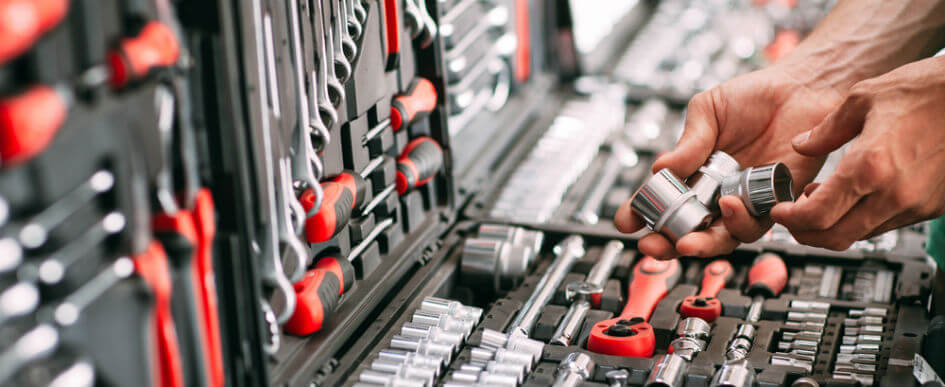
What Are Industrial Vending Machines, and How Do They Work?
Significant setbacks to achieving optimal industrial efficiency and productivity are items that have stocked out, lost equipment and machinery downtime. These generally result from a failure to rapidly track and restock tools, parts, and materials that are crucial to the production process.
Automated industrial vending machines seek to eliminate these problems by bridging time gaps between material/component demand and their delivery to the required people and processes.
What Are Automated Industrial Vending Machines?
Industrial vending machines are automated devices that provide employees involved in a manufacturing process with the tools and materials required to correctly and efficiently perform their duties on a timely basis. The intent of these highly useful industrial devices is distinct from the conventional food/beverage dispensing setups. In place of food items, industrial vending machines store, supply, and take automatic inventory of tools and components used in the manufacturing process.
Advantages of Vending Machines for Industrial Supplies
Manufacturing processes that use industrial vending solutions garner significant benefits compared to those where traditional methods of inventory are applied.
Included among the key advantages of setting up an industrial vending program are:
- Control of item “shrinkage” ranging from 18% to over 50%
- Significant reduction in employee “walk-time” and increased productivity in work cells
- Safe storage of chemicals in automated, locked vending cabinets with issue capabilities
- Easy monitoring and reduced material consumption
- Optimized inventory storage footprint
- Prevention of stock-outs
- Limitation of obsolete items
Shrinkage Control

The use of equipment vending machines facilitates an increased amount of accountability at all levels of production. A tools management system will allow monitoring of high-value tools and components at the employee level.
Each item’s status can be monitored from the moment it is dispensed till it is returned to storage. Also, limits can be set on the quantities of items released at each point to prevent over-usage. Tighter control of tool circulation can be achieved as a result. Even “inexpensive” items such as safety glasses and gloves have a huge inefficient usage that can be controlled effectively.
Safe Storage of Chemicals
Many industrial processes use chemical materials that can pose a significant hazard to employee health if improperly stored. Industrial vending machines can be configured to properly store hazardous chemical materials under the appropriate conditions in locked, controlled-access cabinets
To further improve handling, the equipment can be programmed to provide access to sensitive materials for particular employees only. These individuals will be granted special access, proving they have a thorough understanding/training in how to safely handle the materials.
Easy Monitoring and Reduced Consumption
Industrial vending helps operation managers to easily monitor and effectively control tool/component circulation and control over expendable/consumable items.
Most industrial vending equipment incorporate solid inventory analysis software which helps provide an accurate picture of expendable items, tools, and gauges used on a daily, weekly, monthly, or quarterly basis. With this info operation heads can make informed decisions about how best to maximize efficiency and reduce unnecessary material consumption.
This automated solution also makes it easy to integrate vendor-managed inventory services.
Optimized Inventory Storage Footprint
When properly implemented, vending machines for tools provide a concise picture of the quantities, usage rates, and conditions of tools and components held in storage at any point. This information is critical in making restocking decisions or deciding when to discontinue purchase orders for tools that have become obsolete.
Industrial vending eliminates the decision between periodic vs. perpetual inventory models and makes it easier to manage your MRO inventory. Using these machines can be one of your organization’s leading cost reduction strategies in inventory management.
Prevention of Stock-outs
As earlier mentioned, downtime resulting from tool/component insufficiency will have negative effects on the productivity of any industrial manufacturing process. The use of a vending machine for industrial supply helps eliminate costly restocking delays by predicting tool shortages early.
As a result of the comprehensive inventory taking abilities of these devices, material shortages can be prevented. In some instances, industrial vending machines can be programmed to automatically place orders for replacement components once their quantities fall below a predetermined critical level. This can help effectively reduce manufacturing lead time across the board.
Limitation of Obsolete Items
Industrial vending machine manufacturers often cite a boost in process efficiency as a reason to purchase a vending unit and rightly so. A key way to boost the efficiency of any operation is the ability to recognize obsolete items that are surplus to production requirements. This can be a big help in reducing/eliminating slow-moving and obsolete inventory.
Automated vending machine analytics help rapidly detect rarely used items in the company’s storage facilities. Limitation of further purchase of the identified tools/components allows their gradual phasing out, while re-channeling financial resources to purchase more critical materials.
How Do Industrial Inventory Control Vending Machines Work?
Industrial vending machines are filled with a selection of tools, components and consumable items necessary for the associated process and can be accessed by authorized personnel in several ways. MRO & industries vending machines require users to select the tool required from a touchscreen mounted on the front of the machine and provide a form of machine-readable identification tag.
The verification system might require the scanning of a barcode on an employee tag, biometrics, proximity, or other smart cards. Once employee identity is confirmed, the machine will dispense the durable tool in a few seconds and automatically enter the details of the request into its logs. When the item is returned, the vending machine will store this info and update its inventory.

Industries That Leverage Industrial Vending
Although industrial vending machines can be employed in a limitless number of applications, they are most used in the industries mentioned below:
- Construction
- Aerospace
- Transportation and Automotive
- Government and Military
- Utilities
- Manufacturing and Machining
Common Industrial Supplies Used in Industrial Vending Solutions
The following list of industrial tools and components could benefit from using an equipment vending machine to house and dispense.
- Medical tools and supplies
- Machine calibration equipment and gauges
- Personal protective gear (goggles, safety glasses, hard hats, gloves, and hazard suits)
- Computer components like (mice and keyboards)
- Precision tools and gauges
- Communication devices (handheld radios, phones)
- Work tools (screwdrivers, wrenches, drills, saws)
DXP Offers Industrial Vending Solutions with SmartVend
At DXP, we offer refined industrial vending solutions as part of our integrated supply chain services that are modifiable to your unique production requirements. Our equipment vending technologies aim to fully optimize your production experience by increasing process efficiency in a cost-effective manner.
Contact us online today to learn more about the vending products and services we offer.
